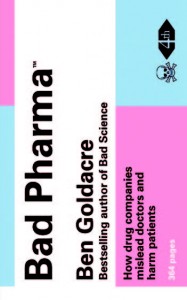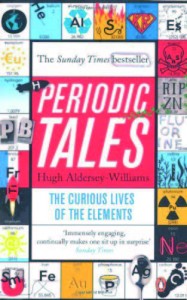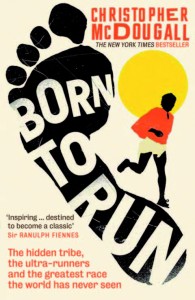WEDNESDAY, 15 MAY 2013
"Medicine is broken", Ben Goldacre fearlessly declares in his new book Bad Pharma. As the title suggests, Goldacre takes on the multi-billion dollar pharmaceutical industry and exposes the tricks they play to undermine the scientific process of drug development in favour of big profit. Using carefully collected evidence and a forensic attention to detail, Goldacre unearths examples where drug companies have suppressed data, distorted evidence and used poorly designed clinical trials to mislead doctors, make huge profits and expose patients to unnecessary harm. If this is not shocking enough, Goldacre also brings to light the failings of those responsible for assessing the science objectively: from the regulators, to scientific journals and academic establishments. Although this book may seem a little unbalanced at times, Goldacre attempts to compensate for this by acknowledging the importance of the pharmaceutical industry as a whole, and outlining ‘obvious fixes’ throughout. Even though the tone is much more serious and intense than in his previous book Bad Science, his witty writing style, indignant passion and ability to humanise the numbers brings the subject matter to life and makes this book a worthwhile read. Yvonne CollinsPeriodic Tales – Hugh Aldersey-Williams
In Periodic Tales, Hugh Aldersey-Williams goes through the periodic table not following the atomic number order but his own logic, finding interesting stories and anecdotes, whether about the well-known oxygen or the less celebrated francium. The book provides a good mix of various cultural references, history and scientifi c trivia. Each element is presented in an eclectic, yet rather selective way—you will find out where in the Bible sulphur got a mention and how lead was used as a metaphor for the human condition. You will also be treated to an 18th century recipe for how to obtain phosphorus from urine—from 50 pails of it. Luckily, the author follows this protocol himself, saving us all the trouble and the gross factor, while satisfying our curiosity as to whether it will work. In short, Periodic Tales is a feast for anyone who wants to be able to answer the questions on the comedy show QI. Personally, I could do with fewer quotes from Shakespeare and even more stories of discoveries, whether strikes of genius or just pure luck, and where to fi nd each element. But perhaps this makes the book more enjoyable for geeks with a more artistic slant. Maja Choma
Born to Run – Christopher McDougall
In Born to Run, American author and runner Christopher McDougall unravels the strangely appealing pleasures of running. Set in the remote Copper Canyon area in Mexico, the book introduces the elusive Tarahumara tribe, reputed to be the most remarkable endurance runners in the world. The story follows a group of iconic Western ultrarunners who, along with McDougall himself, set to compete against the natives in a 50-mile race organised by the mysterious figure Caballo Blanco. Although it reads as a pleasantly flowing novel, the characters and events are all real and the book is subtly packed with intriguing facts on the history, physiology, and culture of running. One theme is the ‘endurance running theory’ of human evolution, according to which, many aspects of our physiology can be explained as adaptations for long-distance running. The author goes on to explain how the wearing of modern cushioned shoes alters the natural running posture, holding this responsible for the recent explosion in injury rates. Fascinating and informative, Born to Run is written with evident underlying passion; a fi lm adaptation is already planned. Fellow runners will instinctively indulge in its themes while others may well be enthused to put their trainers on, or perhaps to even go barefoot, and discover what makes running so popular. Christoforos Tsantoulas



